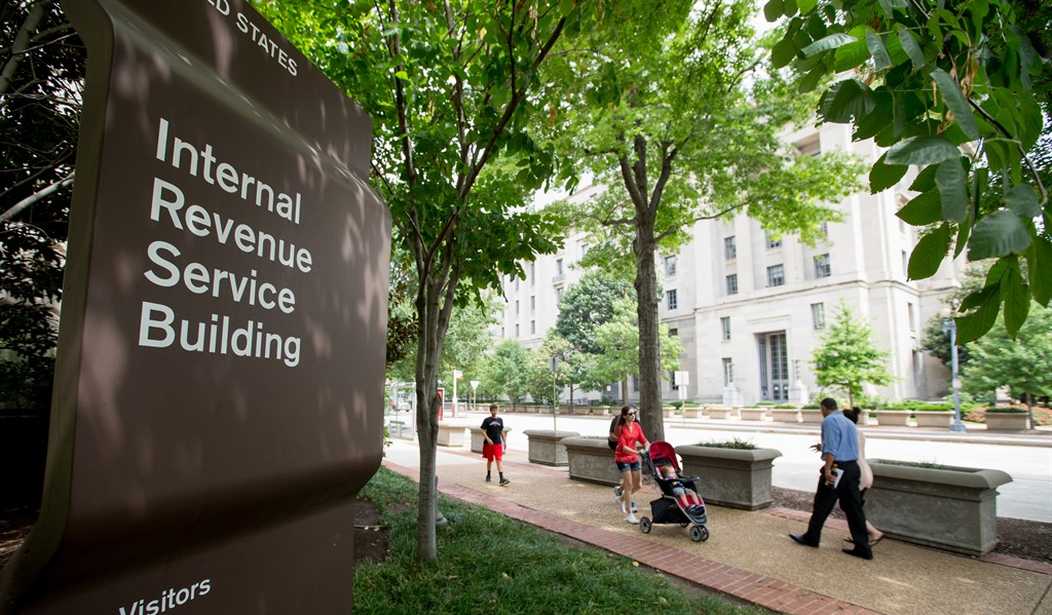As tax season begins, the IRS is making a show of using its newly expanded budget to improve the agency's "customer service," mainly by trying to answer the questions of perplexed taxpayers more than 13% of the time. Its biggest challenge will be persuading Americans that they qualify as customers of the IRS in any meaningful sense.
The IRS, after all, does not provide goods or services that anyone would voluntarily choose to buy. Its main function is separating people from their money, and its chief tool is fear, as illustrated by the $2.1 million penalty it imposed on an 82-year-old grandmother for failing to file a form on time.
Monica Toth was born in Buenos Aires, where her Jewish father ended up after fleeing the Nazis in the mid-1930s. She immigrated to the United States in the early 1960s and eventually became a citizen.
Toth's father prospered as a businessman in Buenos Aires, and shortly before his death in 1999 he set aside several million dollars for her in a Swiss bank account. That made Toth subject to a requirement that Americans report foreign accounts containing more than $10,000 on a one-page form known as an FBAR.
Toth, who completed her tax returns by hand using forms she obtained at the local library, says she initially was not aware of that requirement. When she discovered her error in 2010, she tried to correct it by filing FBARs for prior years, but that paperwork somehow was routed to the Centers for Medicare & Medicaid Services instead of the Treasury Department.
A 2011 IRS audit found that Toth had sometimes overpaid and sometimes underpaid her income taxes. On balance, she owed about $40,000 in taxes and penalties.
Recommended
But that was not the end of it. Because the IRS concluded that Toth's FBAR failure was "willful," a label that courts have interpreted as encompassing reckless conduct as well as deliberate violations, she was subject to what the National Taxpayer Advocate describes as "draconian penalties" that are "among the harshest civil penalties the government may impose."
For "willful" FBAR violations, the penalty is either $100,000 or half the balance in the account, whichever is greater. Toth's penalty came to $2,173,703.
That jaw-dropping sum was completely unrelated to the gravity of Toth's offense or to any injury the government had suffered. She argued that it violated the Eighth Amendment's ban on "excessive fines."
The U.S. Court of Appeals for the 1st Circuit disagreed. Contradicting Supreme Court precedents and decisions by other federal appeals courts, the 1st Circuit last year concluded that Toth's penalty did not qualify as a fine because its purpose was "remedial."
As the Institute for Justice noted in a Supreme Court petition it filed on Toth's behalf, that characterization was utterly implausible, since the government itself has described the aims of FBAR penalties as punishment and deterrence. Justice Neil Gorsuch highlighted that point when the Court declined to hear Toth's appeal this week.
"The notion of 'nonpunitive penalties' is 'a contradiction in terms,'" Gorsuch wrote in his dissent. "The government did not calculate Ms. Toth's penalty with reference to any losses or expenses it had incurred. The government imposed its penalty to punish her and, in that way, deter others."
Such deterrence is crucial for the IRS, which understands that people prefer to keep their hard-earned money and strives to counter that powerful instinct by making terrifying examples of taxpayers who break the rules, even when their violations are accidental, relatively inconsequential or both. Given that policy, the fiction of taxpayers as customers is hard to maintain.
Toth surely does not see herself as a customer of the IRS, and neither does the average taxpayer, who every year confronts the frustration of complying with a byzantine tax code and the anxiety of triggering a grueling, life-disrupting audit. Against that reality, the agency's promises to answer the phone a little more often do not count for much.

























Join the conversation as a VIP Member